Christchurch massacre: Mosque gunman’s miserable life to come in violent prison
Australian mass murderer Brenton Tarrant will be sentenced this week to spend the rest of his life in a violent Auckland prison.
Australian mass murderer Brenton Tarrant is expected to be sentenced today to spend the rest of his life in violent Auckland Prison for the Christchurch mosque massacres.
New Zealand will reflect on its darkest day this morning as its most notorious criminal – 29-year-old Tarrant – begins his sentencing hearing in the NZ High Court.
Justice Cameron Manders will make history if he sentences the white supremacist from Grafton, NSW to never be released from the maximum security Auckland Prison, in Paremoremo.
Tarrant pleaded guilty in March to 51 charges of murder, 40 of attempted murder and one charge under the Terrorism Suppression Act for his shooting attacks at the Al Noor and Linwood mosques on March 15 last year.
Known as Parry, Tarrant’s likely forever home has a reputation for violence against inmates and prison guards and is home to the most “complex, volatile and dangerous” men in custody.
A new $300 million prison replacing the old Auckland jail has installed strict security measures for locking up Tarrant in segregation from most other inmates and keeping him from disseminating his violent and racist rantings to the outside world.
The prison boasts heartbeat detectors, security doors that unlock with a fingerprint scanner and an intimidating five-layered fence.
The daily cost of holding Tarrant – $4932 compared with $302 for a standard prisoner has angered Christchurch’s traumatised Muslim community, which believes he deserves no special protection.
Tarrant himself forecast his cost of confinement in the rambling 74-page manifesto he posted to the extremist internet forum 8chan on the day of his attacks.
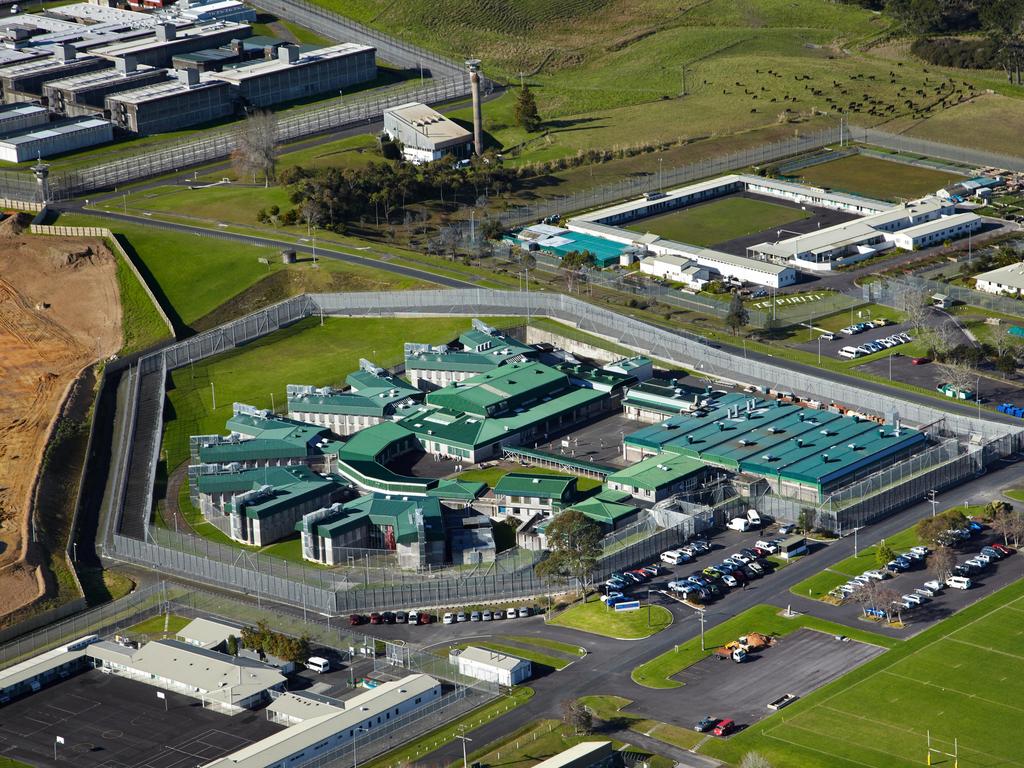
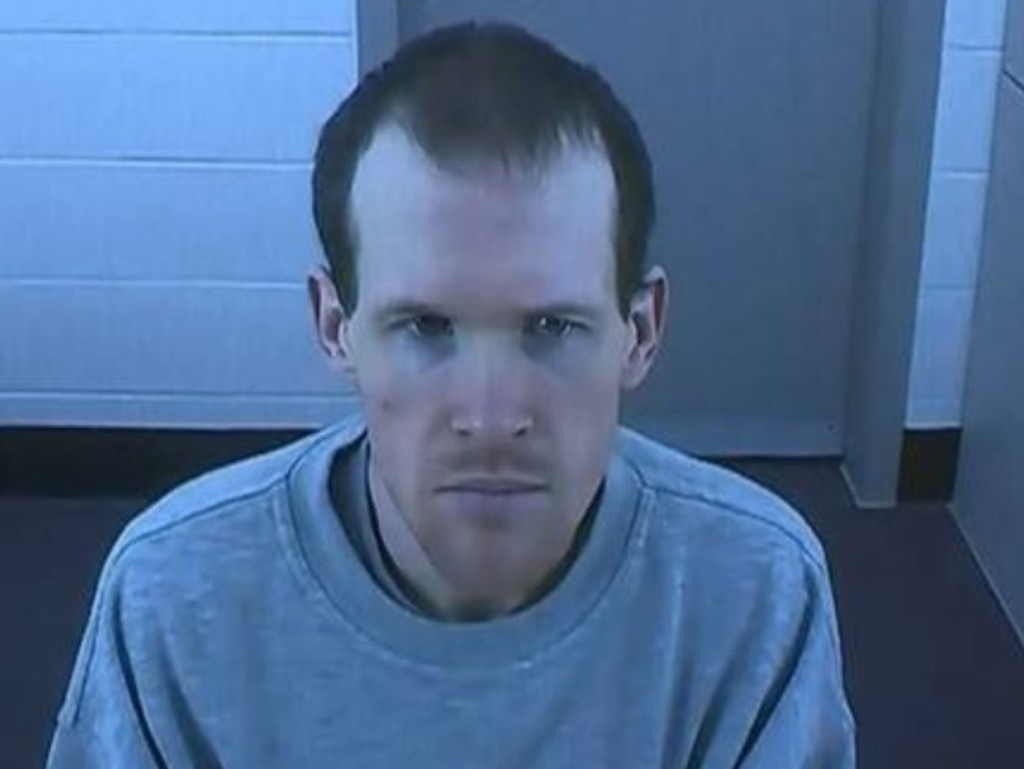
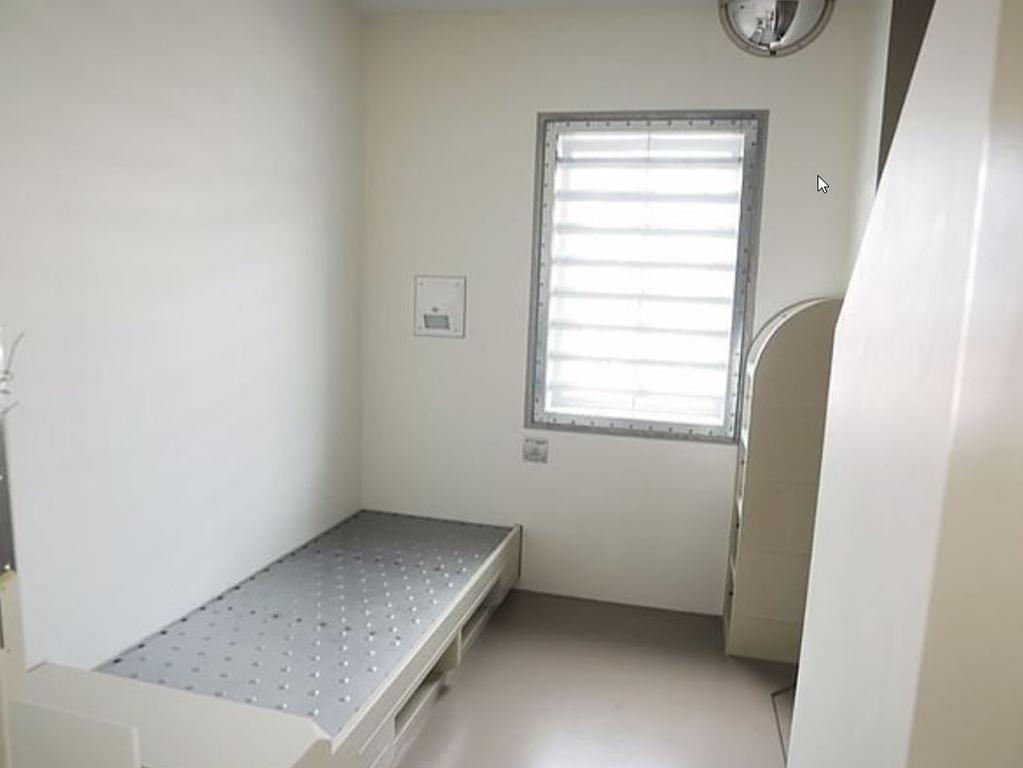
He wrote that if he wasn’t shot dead “survival was a better alternative … in order to further spread my ideals by media … and to deplete resources from the state by my own imprisonment”.
The Muslim Association of Canterbury was also angered last year when Tarrant managed to have a prison letter posted on 4chan.
The letter, which appeared to rally the support of white supremacists, was one of seven sent since his imprisonment, five of which were responses to fan letters, the NZ Herald reported.
In response, the NZ Department of Corrections has introduced a new mail screening system for high risk prisoners.
Auckland law professor Kris Gledhill told Radio NZ he expected a historic sentence for Tarrant, the first time a life sentence with no parole is imposed in New Zealand
In his delusional manifesto, Tarrant says he expects to be released from prison after 27 years of incarceration, the same term served by South African anti-apartheid revolutionary, Nelson Mandela.
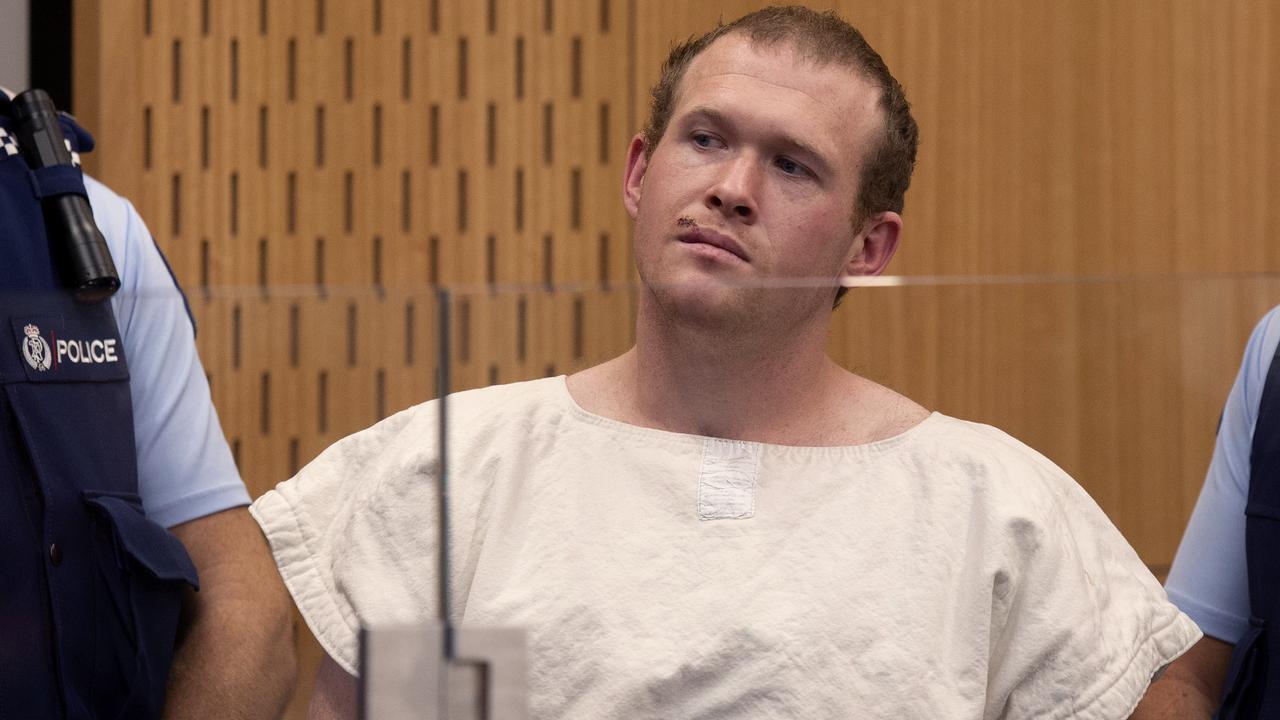
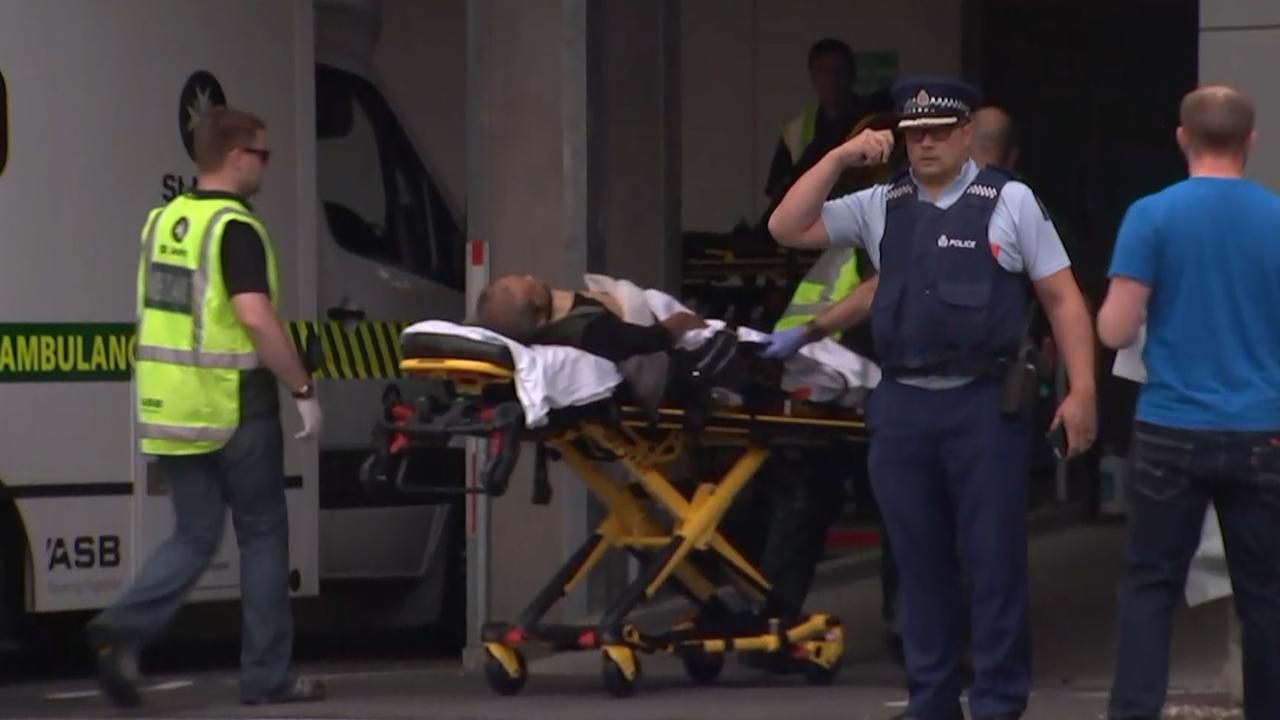
The manifesto was written in the three weeks prior to the March 2019 massacres.
Tarrant had been living in a flat in part of a pale blue clapboard house on a steep hill in a sleepy suburb of Dunedin, on the southeast coast of New Zealand’s South Island.
In November 2017, Tarrant obtained a gun licence and proceeded to buy a semiautomatic weapon, an AR-15 assault rifle two shotguns and a lever-action firearm.
He then modified the weapons to facilitate the quicker discharge of rounds.
He joined the Bruce Rifle Club, where news.com.au revealed on the day after Tarrant’s attack, he upset other members with rants “zombie apocalypses” and “homicidal fantasies”.
At the rifle club, which is near the town of Milton 45km south of Dunedin, Tarrant “shot like he meant it and with high powered [weapons]. You don’t need all that for hunting animals” a 34-year-old local hunter Tristan revealed to news.com.au.
Pete Breidahl, who attended a competition at the rifle club in November 2017 reported them to police, raising concerns they had Confederate flags and wore camo clothing with military webbing.
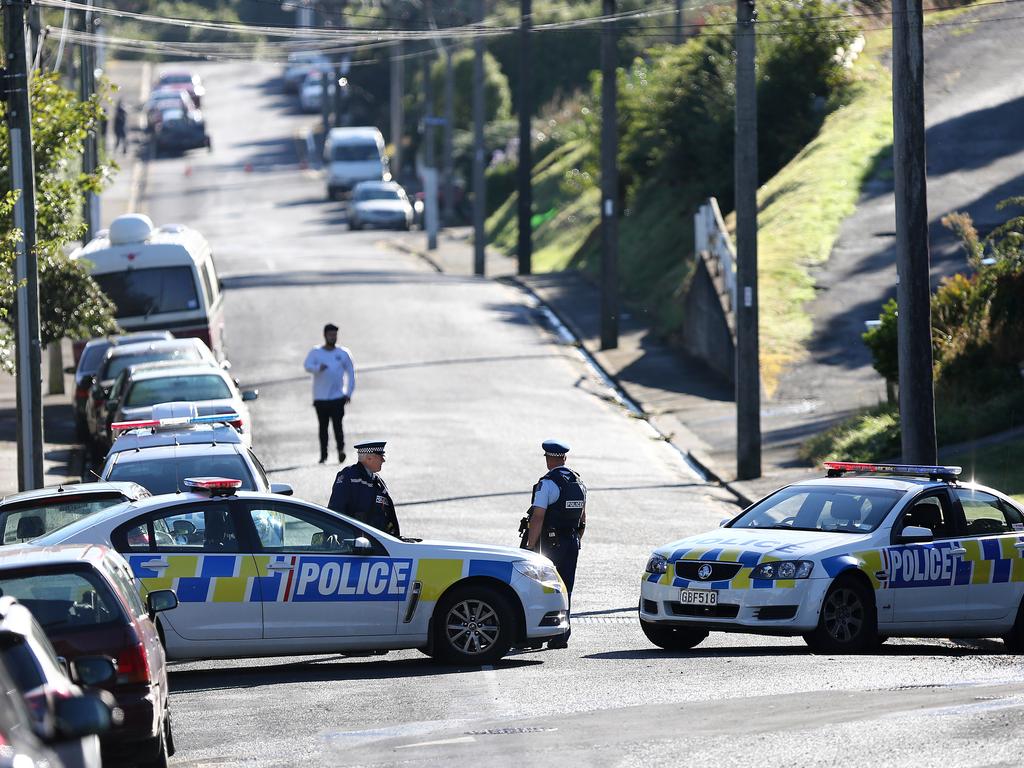
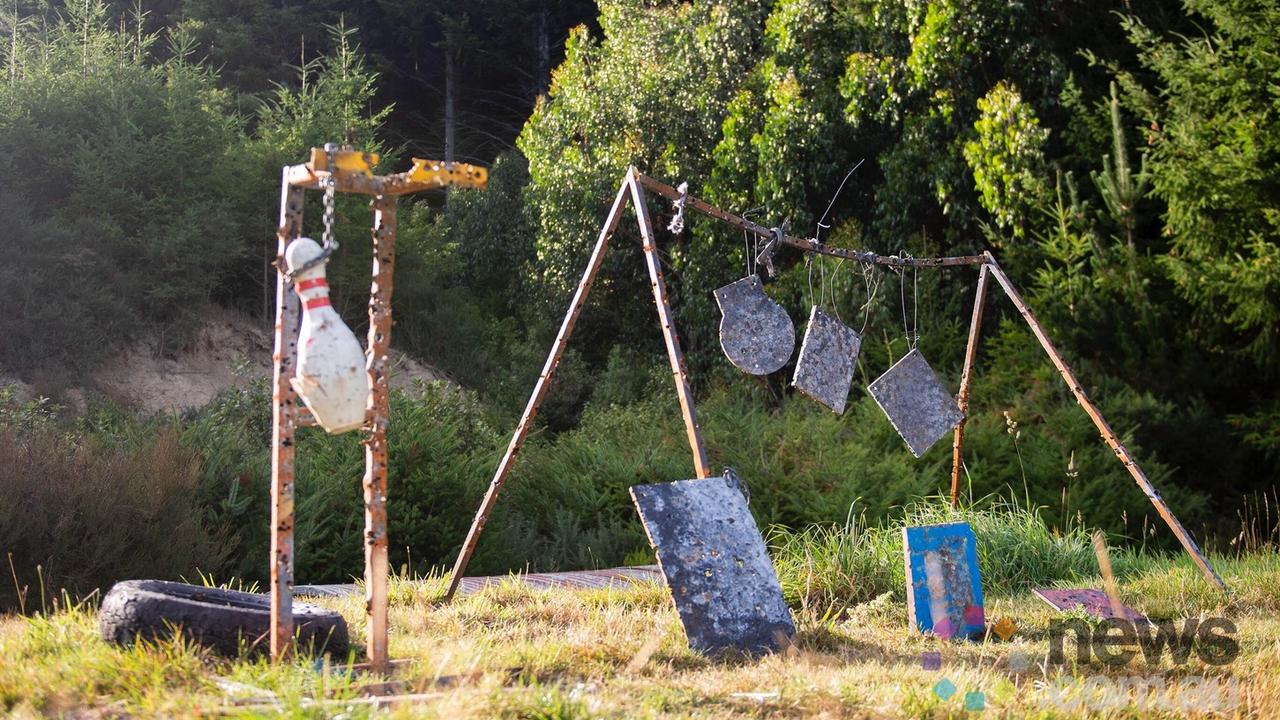
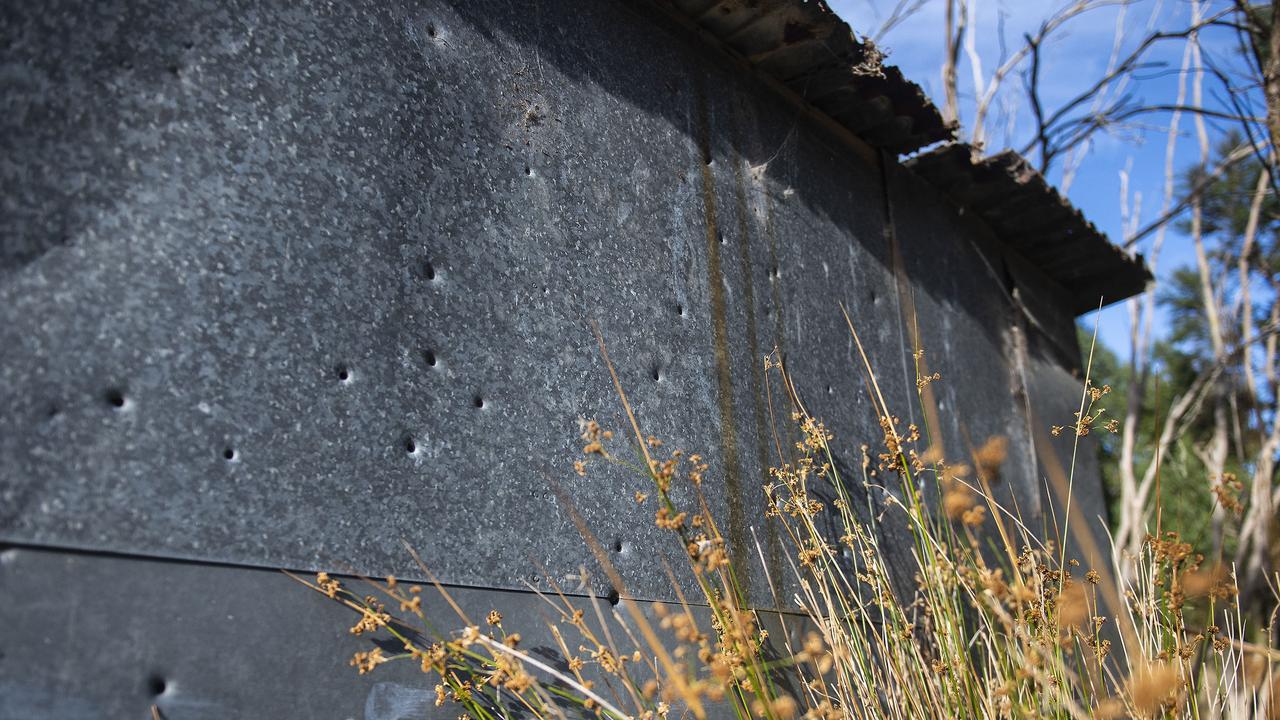
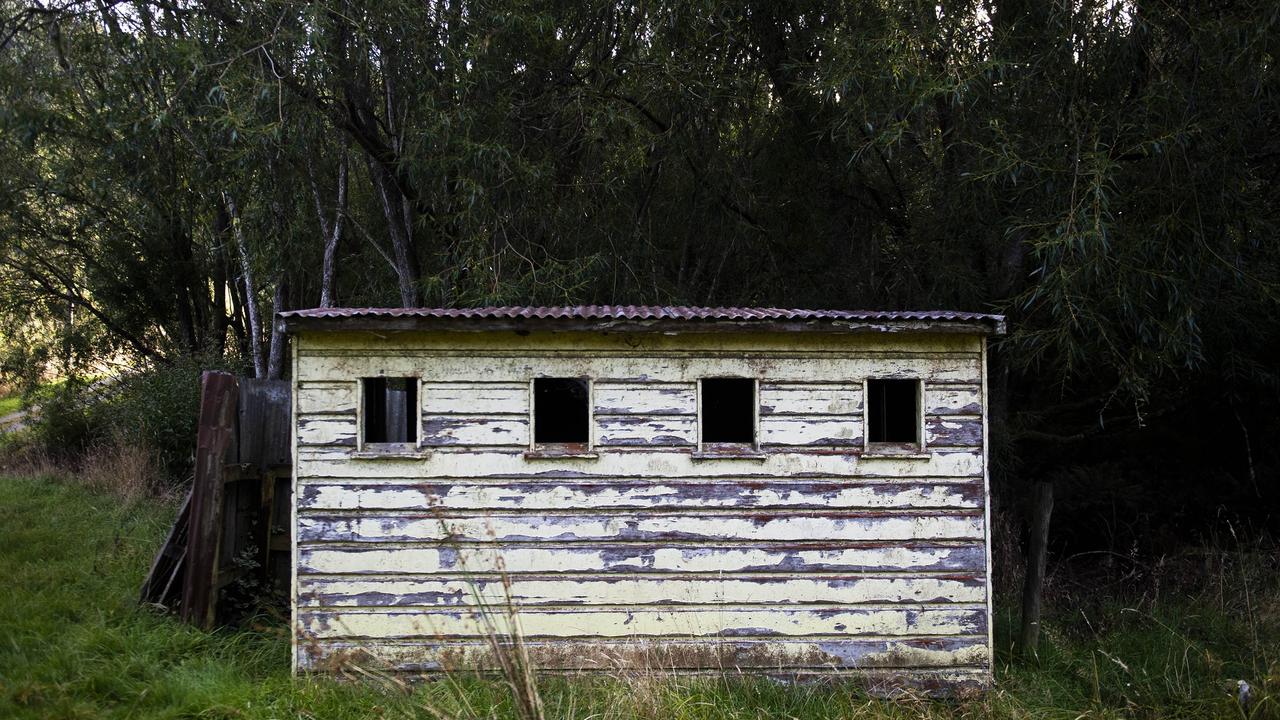
“He was complaining about skateboarding kids at the uni saying if they can carry their boards then he should be allowed to carry a gun,” Mr Breidahl wrote in a Facebook post to his animal hunter friends.
Dunedin police did not act. Mr Breidahl said police told him “they are a strange bunch” but “they are harmless enough”.
The rifle club has said it will “carry out a review of its culture in light of the terror attack, but strongly refutes its culture bred a killer”, according to stuff.co.nz.
It has been since reported Tarrant alarmed shooters with ramblings about Port Arthur mass shooter Martin Bryant.
Mr Breidahl claimed he was a party to one conversation with a group of shooters at the rifle range, one of whom he believed was Tarrant.
The shooter was “talking about how Martin Bryant had cornered people in the booth and how he managed to make so many head shots in such a rapid pace.
“This is a guy who had clearly studied how Martin Bryant had did it in great detail.”
Tarrant appears to be boasting on Bryant’s behalf about shooting 20 people dead inside Port Arthur’s Broad Arrow Cafe, who were among the 35 victims of his 1996 massacre.
Tarrant claims in his manifesto he planned his own massacre for two years, at first selecting Dunedin’s Al Huda Mosque as his target.
Three months before the attacks, he switched his focus 360km drive north to the two mosques just over a 5km drive apart in Christchurch.
Two weeks before his attack he gave notice to his landlord and potential renters were shown through the sparsely decorated flat which had bare walls and only a bed in the living room.
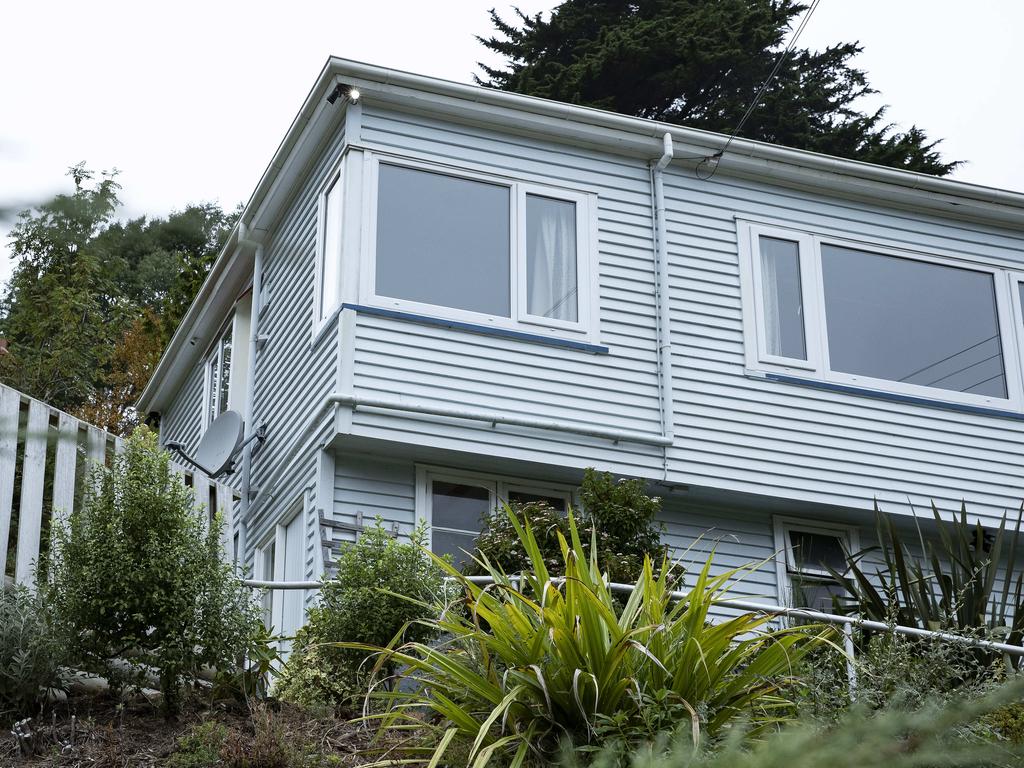
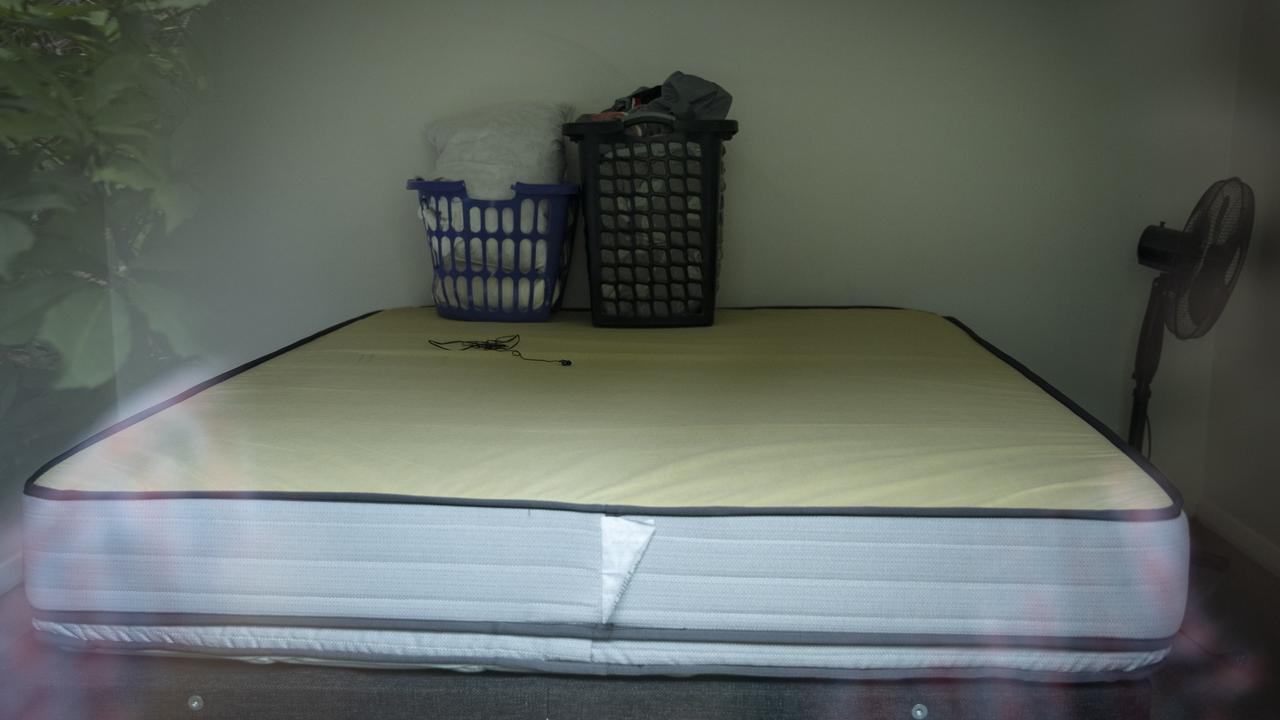
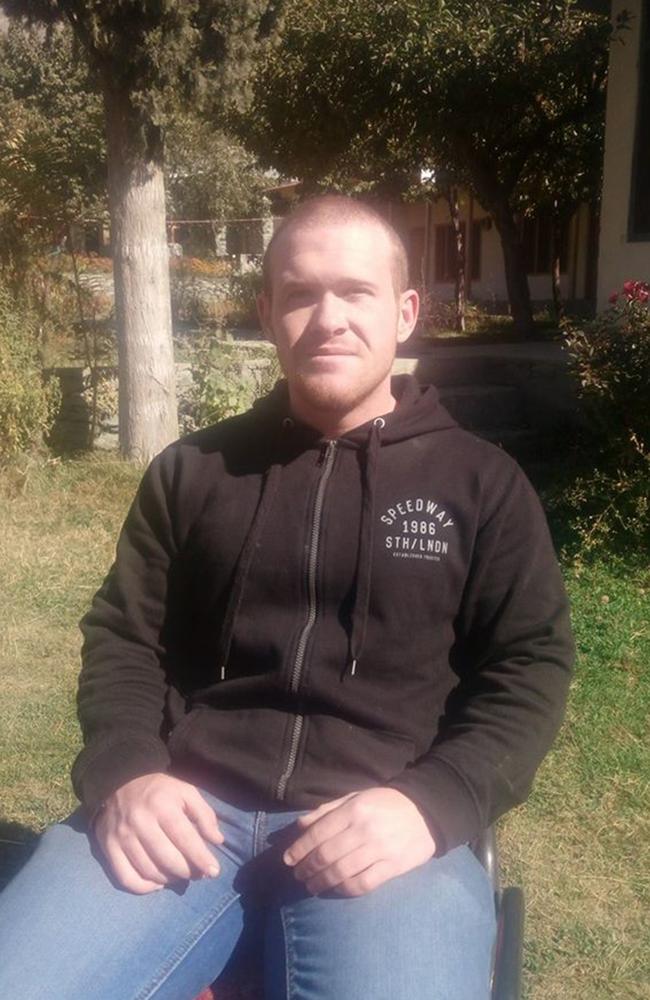
Tristan, who was living a few doors up from Tarrant and had only a nodding acquaintance with him, said the Australian lived quietly, had no visitors, but had befriended another neighbour.
Tarrant reveals in his manifesto that he was “a private and mostly introverted person”.
The former personal trainer frequented a nearby gym, and had bulked up in the months before the massacres lifting 200kg weights.
He spent hours online researching and also posting messages criticising Muslims and supporting terrorists.
“He was on Facebook for years saying how great terrorists were and he supported it,”
next door neighbour, Brooke, told news.com.au she never heard a sound from Tarrant, no music, no visitors and he “was always by himself”.
At some point Tarrant quietly began to adorn his arsenal of five black weapons with references and slogans written in white pen.
They refer to a grab-bag of conflicts and incidents.
These include the battles between Muslims and Christians during centuries Ottoman rule of the former Yugoslavia and the bloodiest spots of the 1990s Balkan war which Tarrant had visited before settling in New Zealand.
The number 14 written on the rifles may refer to a white supremacist slogan linked to Adolf Hitler’s Mein Kampf, and he used far-right symbol the Schwarze Sonne, or black sun.

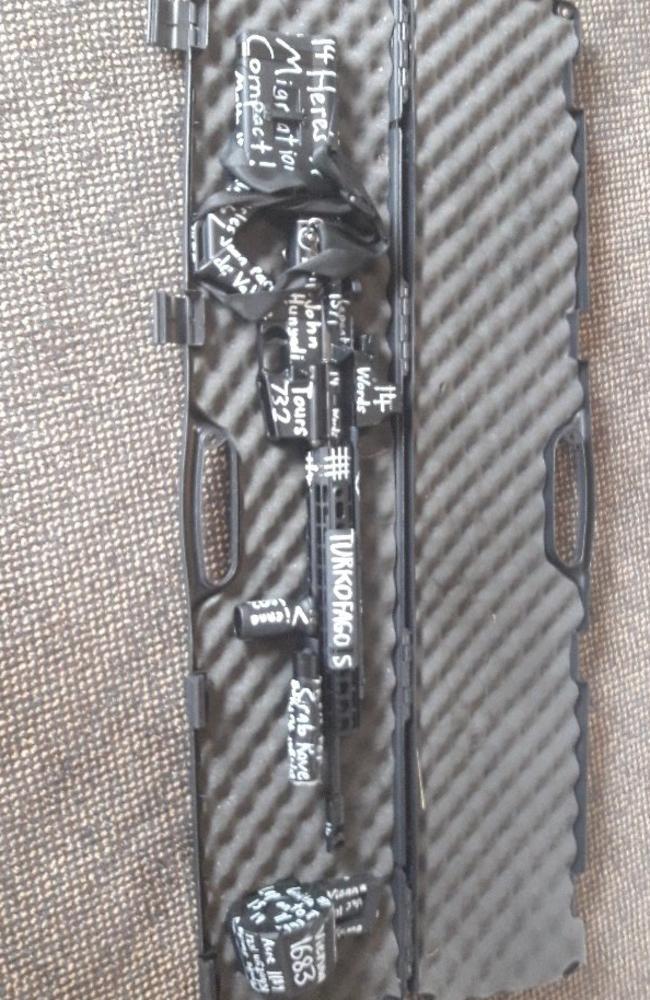
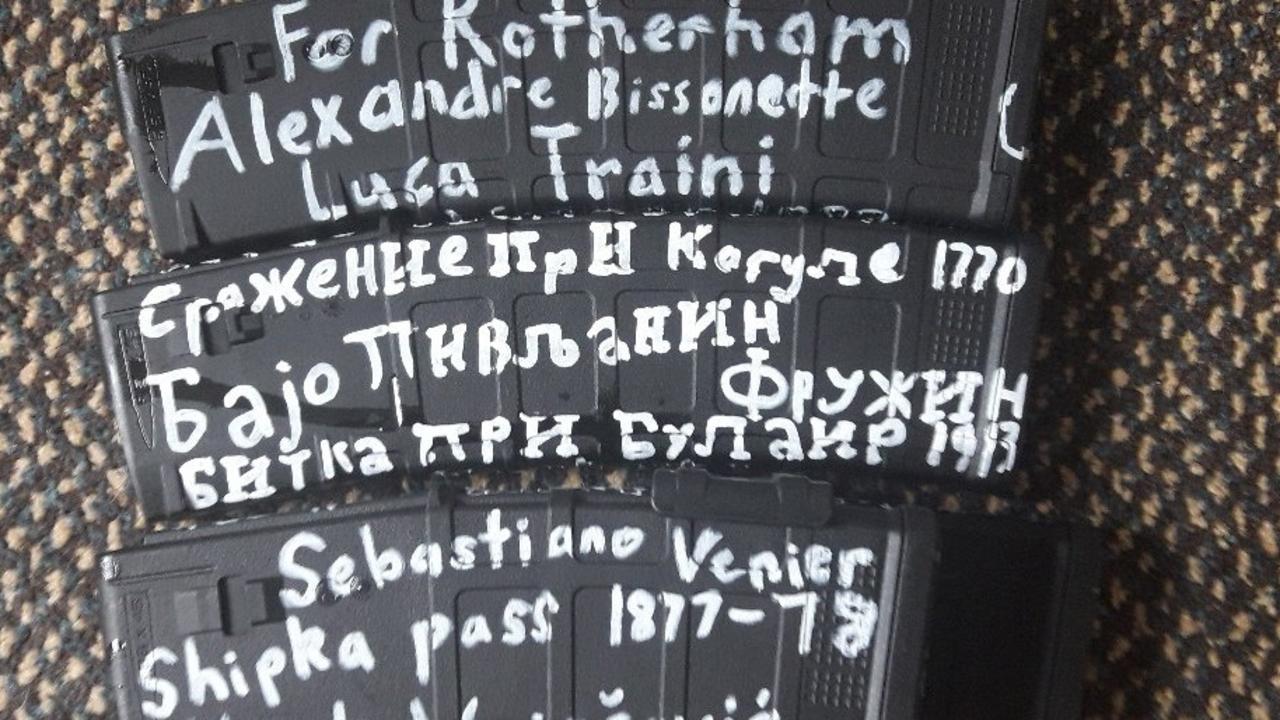
The name Charles Martel, who white supremacists claim saved Europe from invading Muslims in the year 734, was also on the weapons.
At least two firearms bore references to Ebba Akerlund, an 11-year-old girl killed in a 2017 truck-ramming attack in Stockholm by an Uzbeki Muslim man.
In a self-aggrandising part of his manifesto in which he tries to ennoble his mass murder plan, Tarrant claims this was a tipping point, that he was a defender of this innocent girl.
Along with painting his weapons, Tarrant had purchased a head camera and arranged with a another man to livestream video of his attack.
He would also send his manifesto to several prominent email addresses, including that of Prime Minister Jacinda Ardern.
THE DAY THE MASSACRE HAPPENED
Friday March 15, 2019 was a warm, bright Autumn day in Christchurch, topping 19 degrees at noon.
Tarrant was already on his way to the city in his silver Subaru Outback packed with his weapons and homemade explosive devices on the back seat.
At some point, he sent a message to his mother Sharon warning her of a pending uproar about him.
With loud music playing and a pumped Tarrant saying “let’s get this party started”, he began his livestream and pulled up at the Masjid Al Noor mosque on Deans Avenue, Riccarton.
In the vile 17-minute livestream video which was later banned, Tarrant enters the mosque at 1.40pm and begins shooting into worshippers there for afternoon prayer.
A strobe-light attached to one of his weapons was used to disorient victims.
He then left the mosque, fired on people outside, returned to his vehicle to retrieve another firearm, returned to the mosque and began shooting again.
He had planned to set the mosque on fire, but instead drove off, travelling east and passing police cars responding to reports of the shooting.
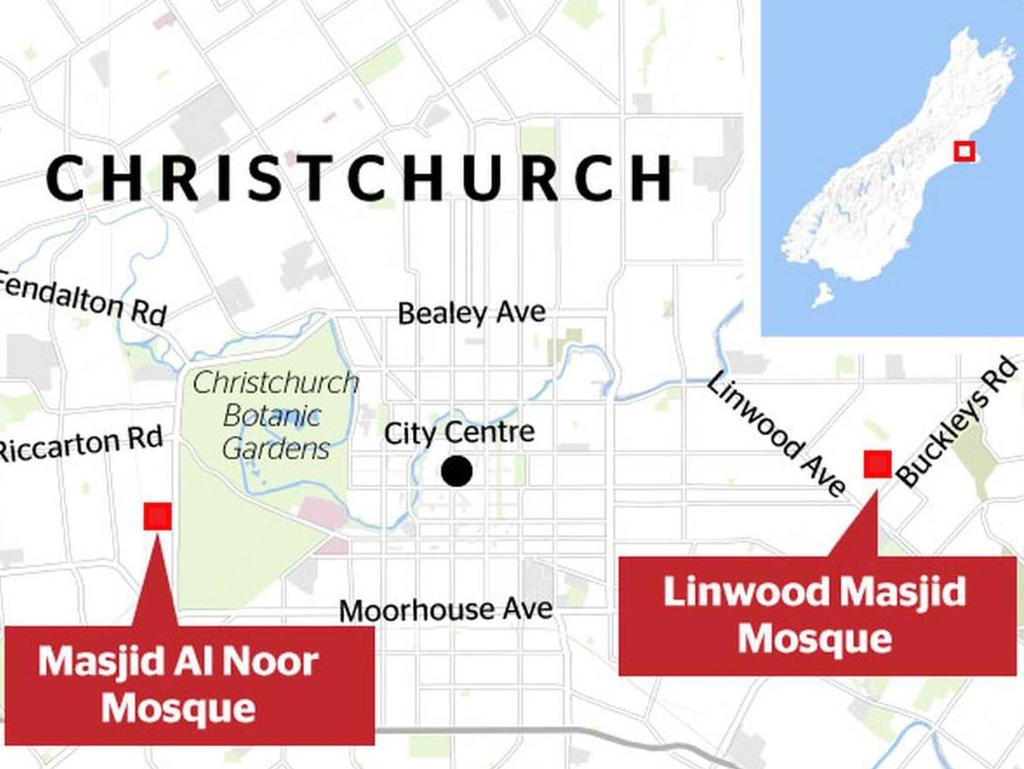

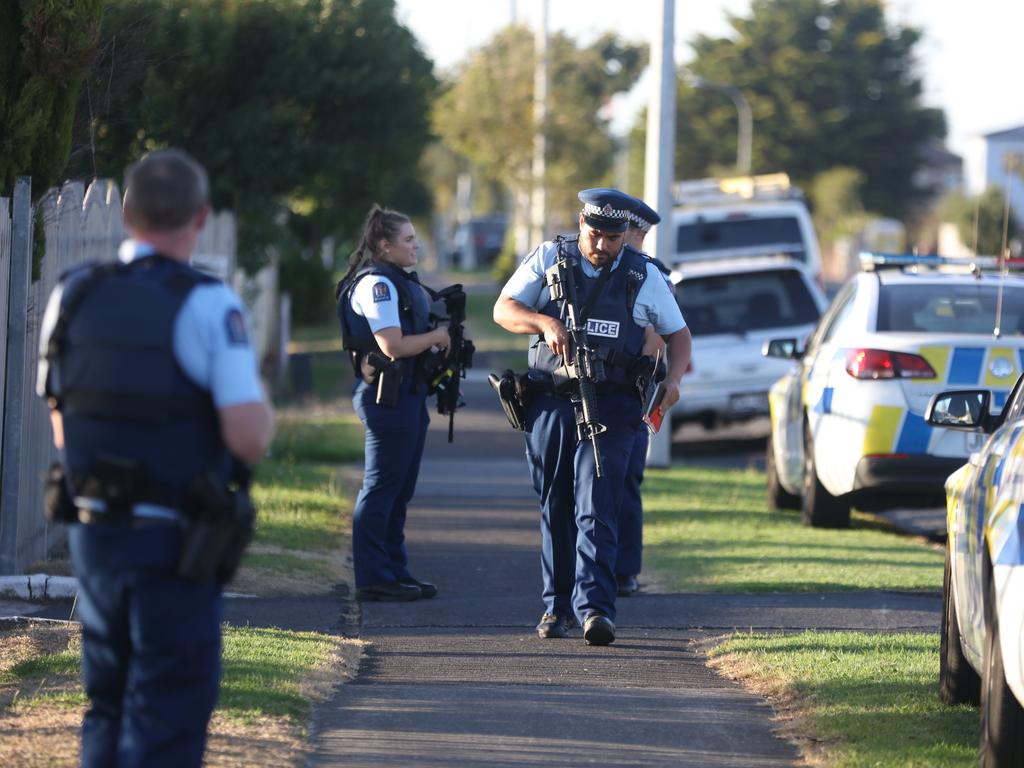
As he reached the Linwood mosque, the headcam footage abruptly stops.
At 1.52pm, and initially unable to find the front door, Tarrant shot through a window and at the 100 people outside.
Tarrant was about to get a second weapon from his car when worshipper Abdul Aziz Wahabzada came out with a credit card reader machine and threw it at him.
Tarrant entered the mosque and continued to shoot, but Mr Wahabzada picked up a shotgun Tarrant had dropped and smashed a window of the silver Subaru.
The gunman drove away at 1.55pm, and a few minutes later two Christchurch police officers saw the Subaru driving erratically with its hazard lights on.
It was just 18 minutes since the first emergency call from Al Noor Masjid and police had no idea at this time how many shooters were involved in the mosque attacks.
The officers rammed Tarrant’s car to the side of the road and dragged Tarrant through the passenger side of the car onto the footpath.
New Zealand police do not routinely carry weapons, but the two cops had been at a training session on how to disarm offenders just 8km away when they heard the first emergency call.
Rather than go to the mosque, which they figured the one or more gunmen would have left, they tried to predict where an active shooter might head next.
After dragging Tarrant from the car, they thrust him to the ground at gunpoint and handcuffed him.
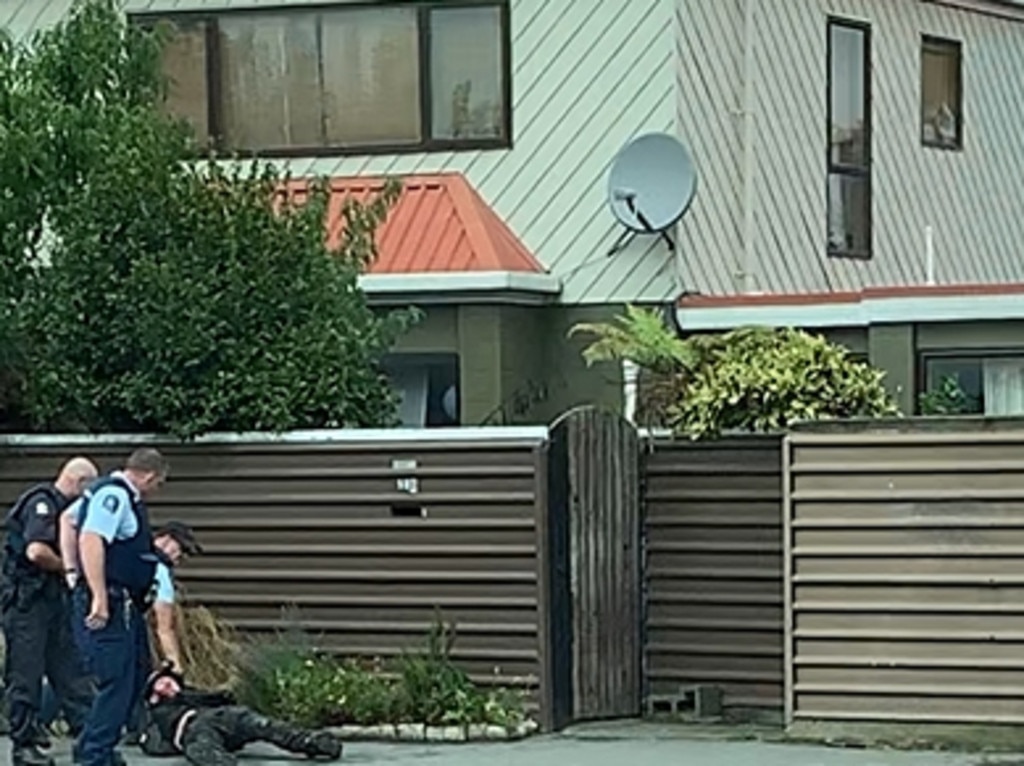
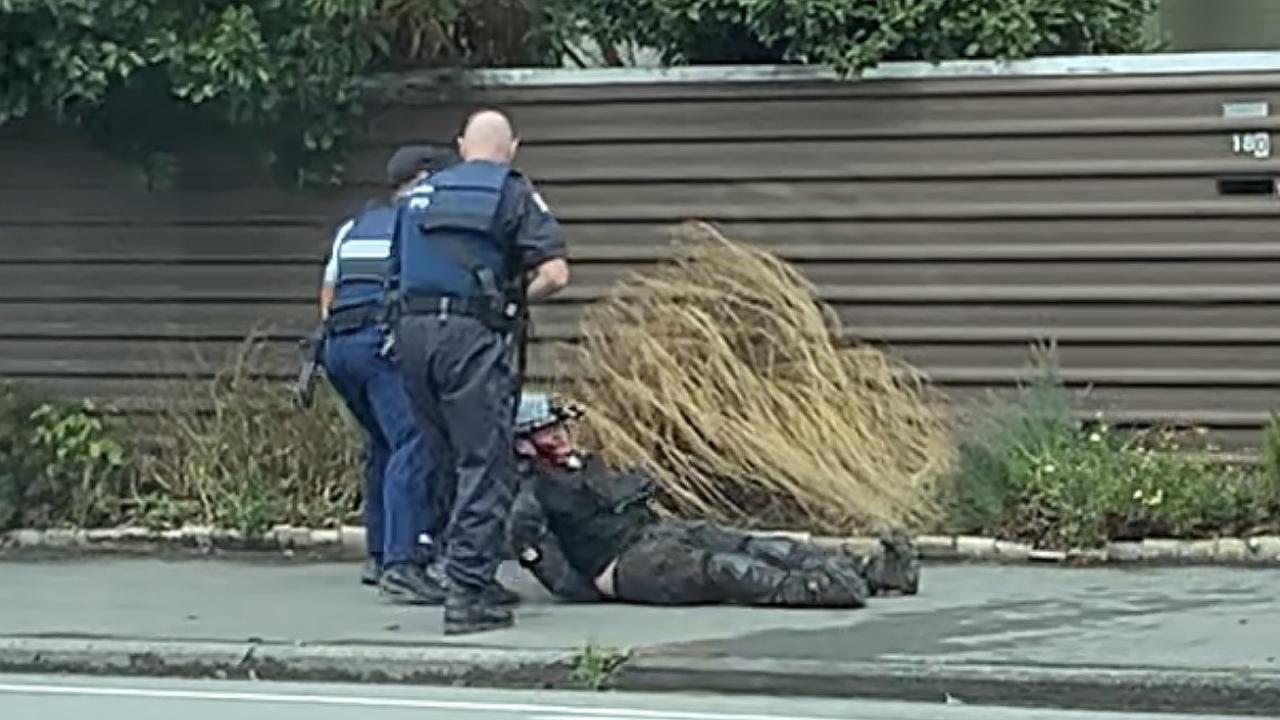
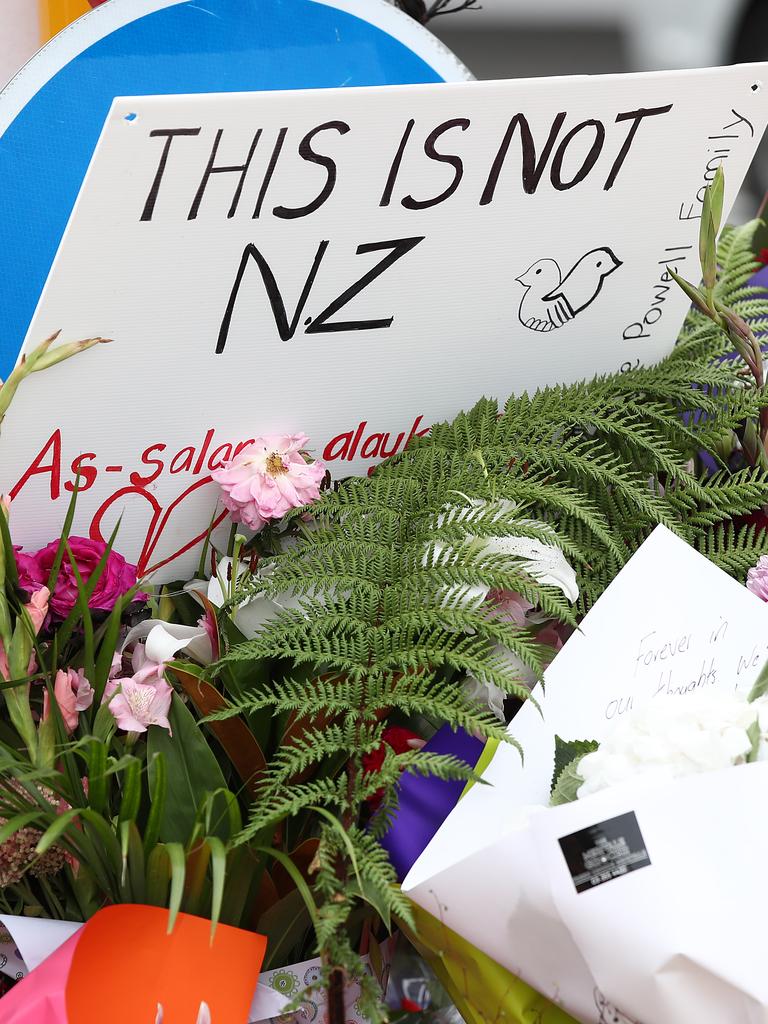
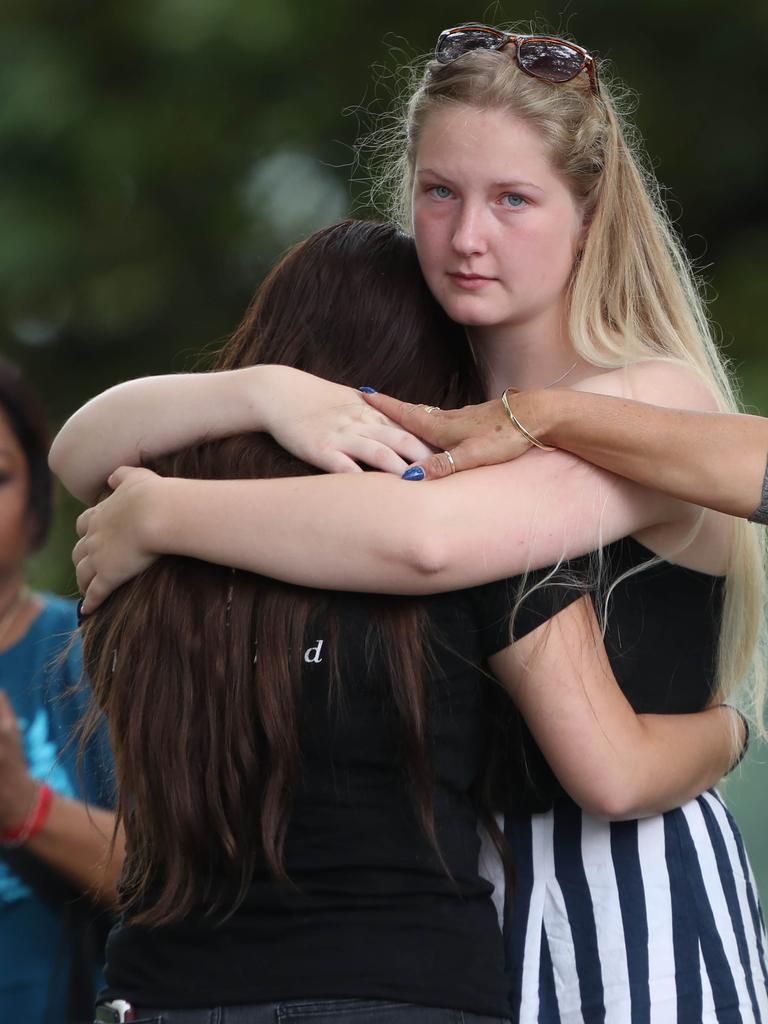
It was believed the officer’s arrest – for which they received bravery awards – Tarrant had been headed for a third mosque, the Ashburton Masonic Centre, 90km south, on the drive back to Dunedin.
The death toll from his attacks would eventually reach 51, with 40 wounded.
The following morning, Tarrant entered Christchurch District Court flanked by two police officers.
Shoeless, and wearing a cream-coloured prison smock, his wrists were handcuffed to a leather body belt around his waist.
Tarrant was surprisingly short and, still bulked up, possibly with the assistance of steroids, he was squarish in shape, had an abrasion on his lip and thinning reddish hair.
He looked directly over at the rows of media crammed into the court to his left and smirked with satisfaction.
A pool camera operator opposite Tarrant caught him flashing his right hand in an upside-down “OK” signal, a symbol used by white power groups.
Standing behind a clear perspex screen, he kept on returning his gaze to the media in the court and smiling to himself.
Subsequent court appearances show a much-slimmed down Tarrant, with his hair further receded above a long, horselike face.
At Parry prison, like every other inmate, Tarrant has received three meals daily and the standard entitlements of a shower and two hours outside alone in the caged yard attached to his segregation cell.
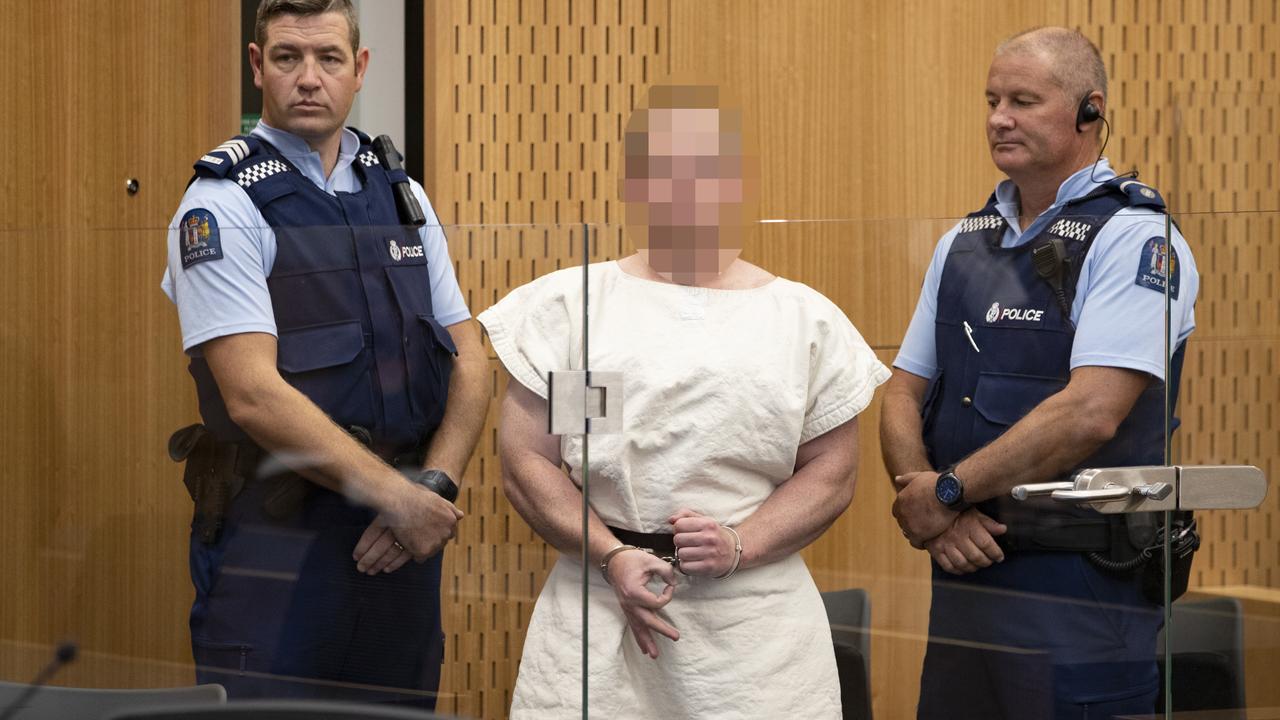
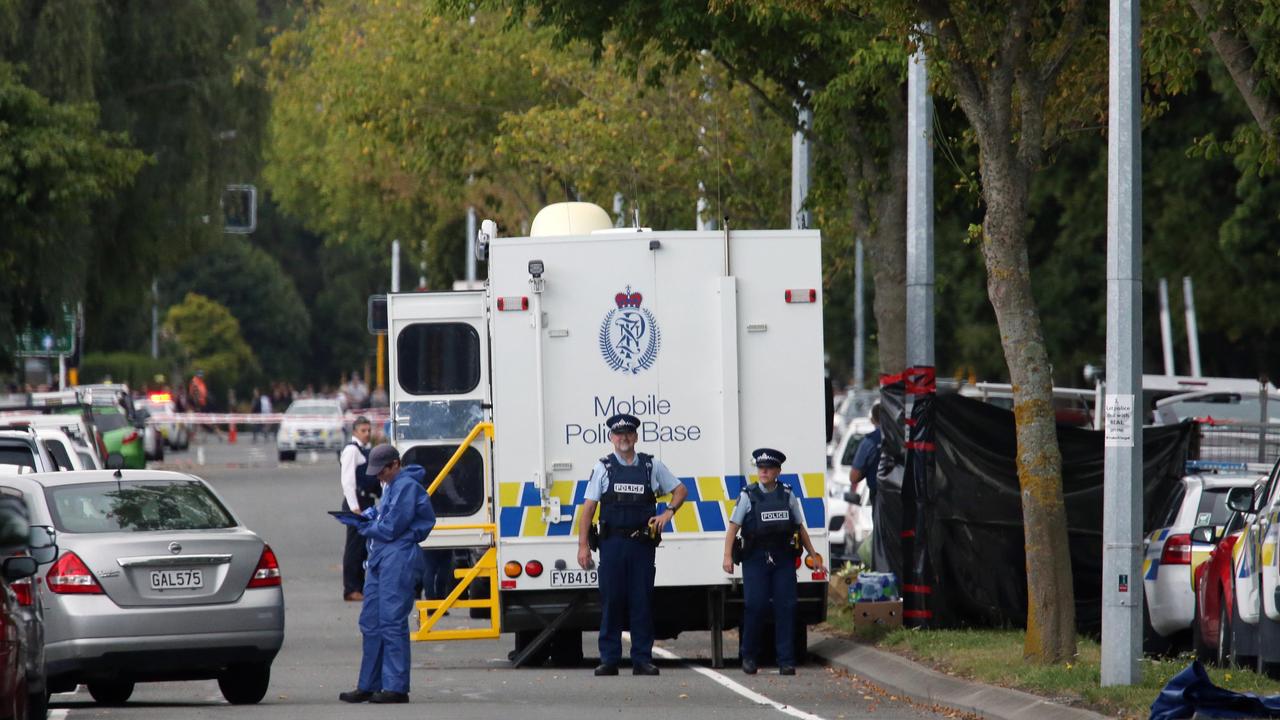
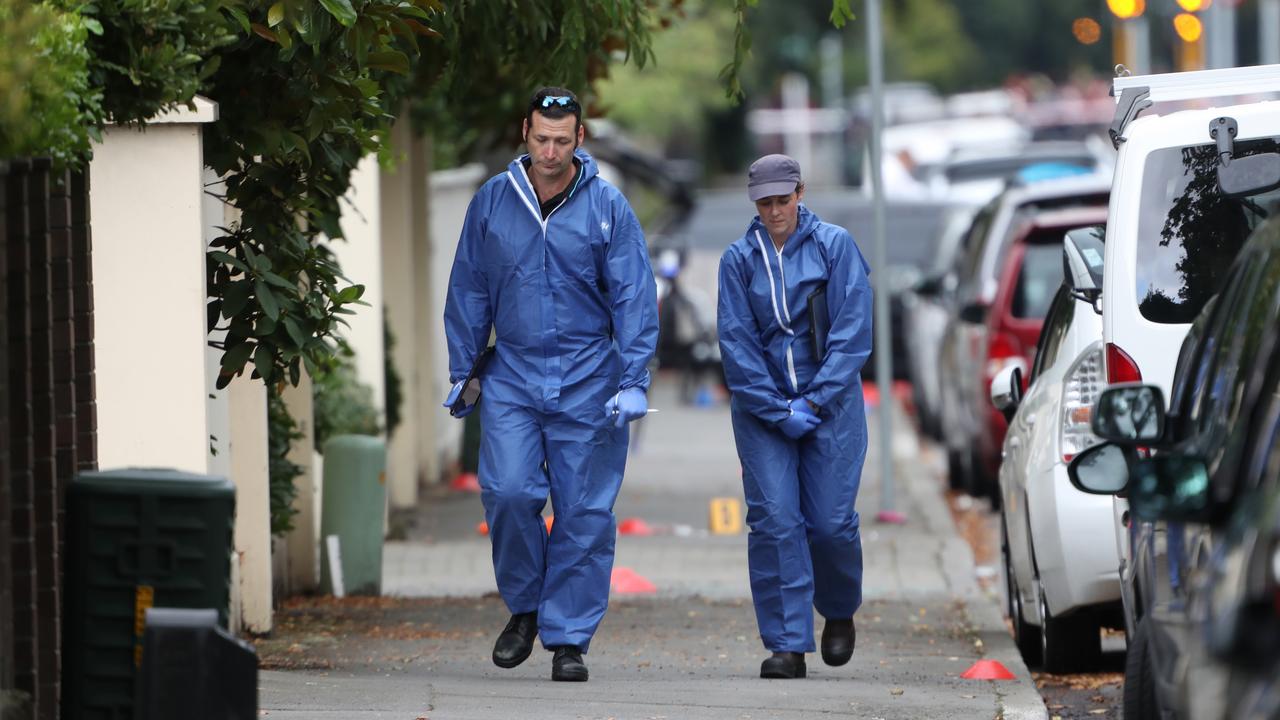
According to a NZ Department of Corrections Auckland Prison has previously been subject to numerous violent assaults of staff or other inmates by prisoners.
Professor Kris Gledhill said NZ Corrections’ task after he is sentenced today, to keep him safe from attacks by other inmates, and maintain his health, could endure for more than half a century.
Ordinarily, sentencing would free up restrictions on a prisoner like Tarrant, who made a formal complaint about his lack of access to phone calls and visitors within two weeks of his arrest.
NZ Corrections can withhold entitlements if the security of the prison is threatened, or the “health or safety of any person is threatened”.
But prisoners are allowed at least one 30 minute weekly visit from family or friends and one phone call of up to five minutes each week.
As in most developed countries, NZ bans mobile phones and internet access in its prisons, so Tarrant’s ability to promulgate his anti-Muslim hate message is hopefully at an end.
Judging by his affection for the internet and platforms like 4chan and 8chan, Tarrant’s biggest deprivation of liberty will be zero online life.
What his silly but also sinister manifesto failed to predict is his acts would serve to unite New Zealand against terrorism and hate.




